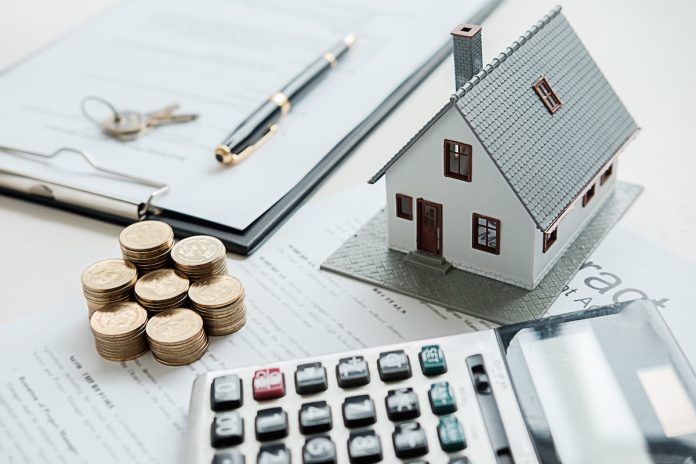How Property Maintenance Can Increase Property Value
Regular property inspections, constant maintenance, and improvements not only guarantee long tenant stays but also increase the value of your property over time. A good real estate property should increase in value with time, and to achieve this, it must remain in pristine condition through quality maintenance. Here are some tips and ways to teach you how property maintenance can increase property value.
Indeed, other market forces such as economic depression or local corporations relocating may dictate property values, but even then, a high-value property will still attract tenants.
1. Regular property maintenance
Preventive maintenance regularly ensures your property stays attractive to potential tenants and sustains value. Regular maintenance beyond the standard also ensures you avoid potential code violations and running into headwinds with regulatory authorities. Responsible property managers in Detroit from Evernest, MidPoint, JMZ, or Home365 can guide you on what levels of property maintenance are suitable for your units and carry out the maintenance on your behalf.
Applying preventive maintenance and replacing damaged parts instead of patching proves less costly than emergency repairs. Always use a licensed property maintenance technician or property management company for quality service and as stipulated under local ordinances. Ensure all aspects of the property covering plumbing and electrical installations, appliances, heating systems, security fittings, painting, and finishes are functional and in perfect condition for habitation and property valuation.
2. Undertake renovations
Renovations breathe a new lease of life into old structures and raise their property value. However, regular wear and tear will eventually take its toll on the building, and before you know it, most of the installations will be outdated with building code requirements. This degradation will not only land you in trouble with the law but also expose your tenants to risks and accidents on your property that could saddle you with costly claims.
Renovations can also present the opportunity to change the look of your property – of course, within regulatory provisions – giving it a facelift that raises value as well. Consider renovations that will cost the least time and money but achieve maximum impact on property value in a selective improvement strategy. Always watch property market trends to find inspiration and ways of improving your property to shore up its market value.

3. Consider installing modern technology upgrades
Tenants and even property buyers are looking for houses with modern amenities that include smart technologies. Current trends lean towards technology-assisted homes or smart homes that operate through voice control or remote control devices. Upgrade your property with modern gadgets that offer convenience to your tenants and encourage long stays for enhanced positive cash flow while increasing property value.
Install internet protocol cameras connected to the building’s Wi-Fi network to allow renters to access the camera feed from their smartphones and monitor their homes remotely.
Wi-Fi lights are another convenience your tenants will love besides smart locks that enhance security through the controlled keyless entry and voice-activated appliances in the house. These upgrades not only bring a sophisticated and modern touch to your property but also raise the standard and exponentially appreciate the property value.
4. Keep maintenance records
What does a property maintenance do? It is responsible for any kind of things, from selecting tenants to handling repairs and improvements. A property management company in Seattle can share their background and knowledge, therefore helping to run the property in the most efficient way.
When disputes arise, or accidents happen, the homeowner may face blame for poor property maintenance or its lack. Calculating your tax deductibles can also be challenging if you do not furnish credible documentary evidence for the expenses incurred. To avoid such costly complications, strive to keep meticulous records of every property maintenance activity, expense receipts, emergency service dispatches, and notifications for later reference.
Document every minute detail of all activities and expenses covering the management of your rental property for later use. These records can come in handy at the bank when looking for financing or claiming tax refunds on property maintenance expenses. In addition, accurate records reveal the history of a building and can help inspectors in the valuation process when necessary with a better chance of producing a commensurate valuation report.

5. Depreciation and investment failure
Properties depreciate from regular wear and tear and gradually lose their market value. The best way a homeowner can manage out-of-control depreciation is by keeping constant maintenance alongside regular inspections to preempt any structural or architectural weaknesses before they escalate. Preventive maintenance, renovations, and upgrades help the homeowner retain the property’s original value and increase its current market value while sustaining an excellent ROI.
Property maintenance also helps the homeowner avoid investment failure due to frequent or prolonged vacancies and stagnated rents that cannot generate positive cash flow.
Keeping your property spic and span with working utilities and pristine surroundings attracts and retains tenants for long periods allowing for stable income and property value. The secret to a successful real estate business is in the quality of service to the tenants and the level of maintenance for the property to retain high value.


